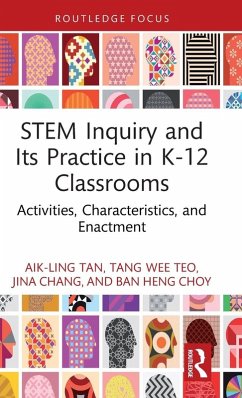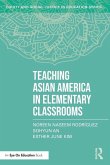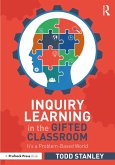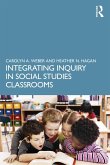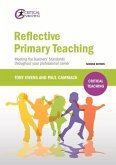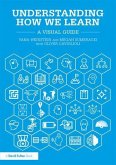Aik-Ling Tan (Singapore NIE), Tang Wee Teo (Singapore NIE), Jina Chang (Singapore NIE)
STEM Inquiry and Its Practice in K-12 Classrooms
Activities, Characteristics, and Enactment
Aik-Ling Tan (Singapore NIE), Tang Wee Teo (Singapore NIE), Jina Chang (Singapore NIE)
STEM Inquiry and Its Practice in K-12 Classrooms
Activities, Characteristics, and Enactment
- Gebundenes Buch
- Merkliste
- Auf die Merkliste
- Bewerten Bewerten
- Teilen
- Produkt teilen
- Produkterinnerung
- Produkterinnerung
Through examining the theoretical ideas of disciplinarity and disciplinary practices, the book presents instructional aspects for teachers to explore when engaged with integrated STEM inquiry.
Andere Kunden interessierten sich auch für
![Teaching Asian America in Elementary Classrooms Teaching Asian America in Elementary Classrooms]() Noreen Naseem Rodriguez (USA Michigan State University)Teaching Asian America in Elementary Classrooms33,99 €
Noreen Naseem Rodriguez (USA Michigan State University)Teaching Asian America in Elementary Classrooms33,99 €![Inquiry Learning in the Gifted Classroom Inquiry Learning in the Gifted Classroom]() Todd Stanley (USA University of Cincinnati)Inquiry Learning in the Gifted Classroom39,99 €
Todd Stanley (USA University of Cincinnati)Inquiry Learning in the Gifted Classroom39,99 €![Integrating Inquiry in Social Studies Classrooms Integrating Inquiry in Social Studies Classrooms]() Carolyn WeberIntegrating Inquiry in Social Studies Classrooms39,99 €
Carolyn WeberIntegrating Inquiry in Social Studies Classrooms39,99 €![Reflective Primary Teaching Reflective Primary Teaching]() Tony EwensReflective Primary Teaching38,99 €
Tony EwensReflective Primary Teaching38,99 €![Understanding How We Learn Understanding How We Learn]() Yana WeinsteinUnderstanding How We Learn36,99 €
Yana WeinsteinUnderstanding How We Learn36,99 €![Teaching Science in Diverse Classrooms Teaching Science in Diverse Classrooms]() Douglas B. LarkinTeaching Science in Diverse Classrooms56,99 €
Douglas B. LarkinTeaching Science in Diverse Classrooms56,99 €![Feats and Flops Feats and Flops]() Jason S. McIntoshFeats and Flops43,99 €
Jason S. McIntoshFeats and Flops43,99 €-
-
-
Through examining the theoretical ideas of disciplinarity and disciplinary practices, the book presents instructional aspects for teachers to explore when engaged with integrated STEM inquiry.
Produktdetails
- Produktdetails
- Routledge Research in STEM Education
- Verlag: Taylor & Francis Ltd
- Seitenzahl: 170
- Erscheinungstermin: 20. März 2024
- Englisch
- Abmessung: 222mm x 145mm x 13mm
- Gewicht: 308g
- ISBN-13: 9781032727578
- ISBN-10: 1032727578
- Artikelnr.: 69792509
- Herstellerkennzeichnung
- Libri GmbH
- Europaallee 1
- 36244 Bad Hersfeld
- gpsr@libri.de
- Routledge Research in STEM Education
- Verlag: Taylor & Francis Ltd
- Seitenzahl: 170
- Erscheinungstermin: 20. März 2024
- Englisch
- Abmessung: 222mm x 145mm x 13mm
- Gewicht: 308g
- ISBN-13: 9781032727578
- ISBN-10: 1032727578
- Artikelnr.: 69792509
- Herstellerkennzeichnung
- Libri GmbH
- Europaallee 1
- 36244 Bad Hersfeld
- gpsr@libri.de
Aik-Ling Tan is Deputy Head (Teaching & Curriculum Matters), Natural Sciences and Science Education. She is also an associate professor of science education at the National Institute of Education, Nanyang Technological University, Singapore. She teaches biology education methods courses and courses related to integrated STEM curriculum. Prior to teaching at the National Institute of Education in 2007, Aik-Ling taught Biology and Lower Secondary General Science at River Valley High School, Singapore for ten years. Tang Wee Teo is an associate professor in the Natural Sciences and Science Education at the National Institute of Education, Nanyang Technological University, Singapore. She is also the Co-Head of the Multi-centric Education, Research and Industry STEM Centre (meriSTEM@NIE). Jina Chang is a visiting scholar at the National Institute of Education, Nanyang Technological University, Singapore. Her research interests include science inquiry from a sociocultural perspective. She has recently broadened her interests to encompass STEM education and multimodal approach in science inquiry. Ban Heng Choy is an assistant professor in Mathematics Education at the National Institute of Education, Nanyang Technological University, Singapore. As a recipient of the NIE Overseas Graduate Scholarship, Dr Choy received his PhD from the University of Auckland, New Zealand, in 2015. He is currently one of the co-Heads for meriSTEM@NIE, a Multi-centric Education, Research, and Industry STEM centre in NIE.
1. Making Sense of STEM Inquiry: Reasons, Inquiry, and Problem Solving 2.
Planning for Integrated STEM 3. Disciplinarity in Integrated STEM Inquiry
4. Assessing Integrated STEM Inquiry 5. Enactment of Integrated STEM
Inquiry in Classrooms 6. Working as a Multidisciplinary Team 7. Learning
from Nature's Design 8. Growing Humanistic Values through Integrated STEM
Inquiry 9. Working with Evidence in Integrated STEM Inquiry 10. Using
Expert Voices to Increase Task Authenticity 11. Conclusions
Planning for Integrated STEM 3. Disciplinarity in Integrated STEM Inquiry
4. Assessing Integrated STEM Inquiry 5. Enactment of Integrated STEM
Inquiry in Classrooms 6. Working as a Multidisciplinary Team 7. Learning
from Nature's Design 8. Growing Humanistic Values through Integrated STEM
Inquiry 9. Working with Evidence in Integrated STEM Inquiry 10. Using
Expert Voices to Increase Task Authenticity 11. Conclusions
1. Making Sense of STEM Inquiry: Reasons, Inquiry, and Problem Solving 2.
Planning for Integrated STEM 3. Disciplinarity in Integrated STEM Inquiry
4. Assessing Integrated STEM Inquiry 5. Enactment of Integrated STEM
Inquiry in Classrooms 6. Working as a Multidisciplinary Team 7. Learning
from Nature's Design 8. Growing Humanistic Values through Integrated STEM
Inquiry 9. Working with Evidence in Integrated STEM Inquiry 10. Using
Expert Voices to Increase Task Authenticity 11. Conclusions
Planning for Integrated STEM 3. Disciplinarity in Integrated STEM Inquiry
4. Assessing Integrated STEM Inquiry 5. Enactment of Integrated STEM
Inquiry in Classrooms 6. Working as a Multidisciplinary Team 7. Learning
from Nature's Design 8. Growing Humanistic Values through Integrated STEM
Inquiry 9. Working with Evidence in Integrated STEM Inquiry 10. Using
Expert Voices to Increase Task Authenticity 11. Conclusions

